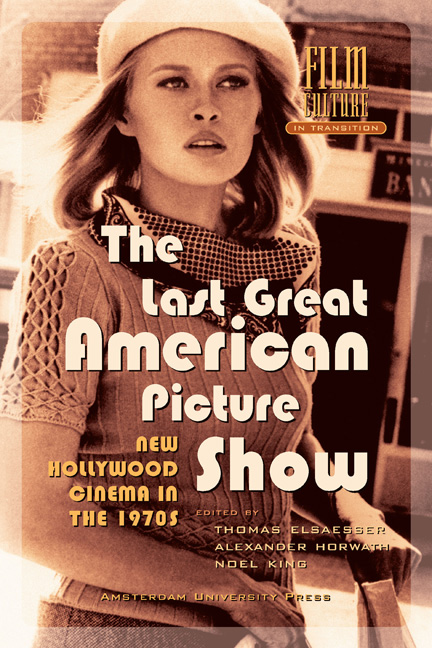Everybody Knows This Is Nowhere: The Uneasy Ride of Hollywood and Rock
Published online by Cambridge University Press: 25 January 2021
Summary
Remember all the movies, Terry, we’d go and see / Tryin’ to learn how to walk like the heroes we thought we had to be Bruce Springsteen, “Backstreets”, 1975
From its beginning, Martin Scorsese's 1973 MEAN STREETS is the most seductive union of movies and rock imaginable: a prowling, claustrophobic fever dream where the images and music are locked in an interpenetrating embrace, each intensifying, elaborating, and undermining the meanings of the other.We first see Harvey Keitel's Charlie abruptly waking from a nightmare – what looks like a nightly ritual, a subconscious form of penance. But the nightmare stays with him, clinging like a caul. Going to the darkened mirror, the reflection he sees there could be his double looking back at him from the confessional or the grave: a stillborn twin. Charlie returns to the empty bed, and his head falls to the pillow in trance-like slow motion. The suspended drum beats of a song seem to come from his pounding chest rather than the soundtrack. Time stands still, and then, as the wave of yearning that is “Be My Baby” washes over the screen, turns back on itself. The Ronettes song, produced in 1963 by Phil Spector (”a one-man millennium”, as Nik Cohn tenderly described him) distilled young love into a utopia of self-fulfilling desire, where to wish for something is to make it so. As embodied by the teenage Veronica Bennett's aching soul-kiss of a voice, it's the reflection of everything Charlie's self-cancelling life is not.
As the opening titles roll, “Be My Baby” orchestrates the home movies we see projected above the neatly lettered credits, like a guilt-ridden Catholic version of Kenneth Anger's Scorpio Rising. Its aria of longing sucks the viewer into Charlie's penny-ante world of duty and crime: an upwardly mobile lowlife, he's an altar boy in the Mafia's hierarchy of corruption. “I’ll make you so proud of me,” the future Mrs. Spector sings, Ronnie's unsteady teenage voice bursting with so much passion it infuses the 8mm memories on screen with a radioactive intimacy. At the same time, we feel a suffocating undercurrent as Spector's “wall of sound” closes in, breathless grandeur taken to the breaking point, loss covertly written into the promise of total gratification.
- Type
- Chapter
- Information
- The Last Great American Picture ShowNew Hollywood Cinema in the 1970s, pp. 249 - 266Publisher: Amsterdam University PressPrint publication year: 2004



